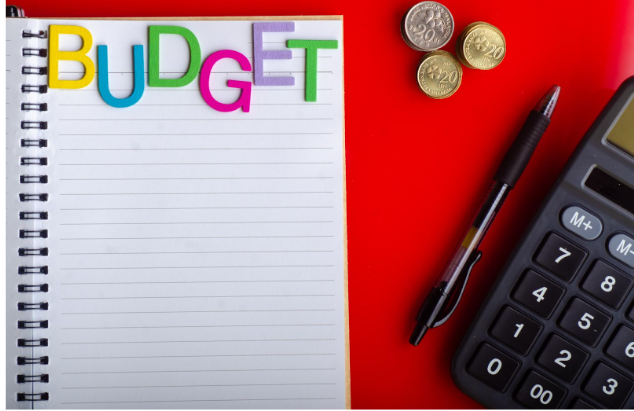
5 Cogent Features of a Budget
Creating a budget can be fun and rewarding. But how do you know you’re creating your budget right? Many people see budgeting as a restrictive practice, but it’s actually a liberating process that helps you take control of your finances, ensuring that every dollar you earn is working towards your goals. In this blog we will look at five key features of a good budget. This is important because it helps you determine if your budget covers these five features. Sometimes, your budget is not working because you left out some little details. Let’s take a look at these 5 features and get you started on the journey of creating a budget that works.
1. Simplicity (A good budget should be simple)
A simple budget is very easy to use. It’s not a security code, so it need not be complex. A simple budget doesn’t go beyond basics like rent, food, transport, savings, and discretionary spending. When you make it as simple as possible, you can see where your money is going each month. You won’t get lost in complex details, making it easier to make smart money choices every day.
Setting up a simple budget is pretty fast. One mistake you don’t want to make is setting up a budget in your head. You should either get a sheet of paper or use your digital notepad. The reason is because you may forget specific details and numbers , but when it is saved somewhere, you can always go back for reference.
A simple budget is easy to keep up with. When is comes to budgeting, consistency is key. You may not see a difference in your finances until you keep being consistent. When you set up a simple budget, it becomes easy to follow through without feeling too burdened. A simple budget is not filled with too many details, so you can quickly check if you’re spending too much on things you don’t need. This makes it easier to adjust your spending and save more money. In all you do, keep it simple and sweet.
2. Flexibility (A good budget should be flexible)
If your budget isn’t flexible, it’s only a matter of time before it stops serving you. You may enjoy it for a while and then you may start struggling with keeping up. It is especially so if your job pays differently from month to month. If you have a flexible budget, you can change how much you spend based on what you earn. When your income is higher, you might choose to save more money or pay extra toward your debts. But if your income drops, you can cut back on things that aren’t essential. It doesn’t have to be about earning variable income alone. Sometimes, situation might change. In other words, as you notice a change in your finances, your budget should be able to accommodate such changes.
Everyone faces unexpected expenses every now and then. One good way to make your budget flexible is by setting aside a part of your budget for emergencies. This way, you won’t have to rearrange your whole budget or go into debt to manage these expenses.
3. Realism (A good budget should be realistic)

Imagine you just started a Consumer Proposal program or you just finished. There is this joy mixed with adrenaline, such that pumps you to wanting to be better at managing your finances. You may end up setting a very strict budget that will end up being unrealistic. If it’s not realistic, it won’t work for long. A realistic budget is grounded in the real numbers of your income and expenses.
Create your budget based on actual figures, not what you hope or think you should spend. When your budget reflects your true financial situation, it becomes a useful tool rather than a source of frustration. It’s easy to stick to a simple budget that feels realistic and manageable than the one that is too complex, choky, and strict. Give yourself some breathing room, it’s not that bad.
Also, it’s important to allow for some pleasures in your budget. When you completely and angrily cut out all enjoyment, one day you will crave for that enjoyment and you won’t have a choice than to go for it, and this deserved act may send your whole budget in disarray. You know why? Because you didn’t make room for it in your budget. Set aside a small part of your budget for treats. This doesn’t mean you’re being irresponsible; rather, you’re creating a balanced budget that you can live with, long-term. This will help you prevent feelings of deprivation, you will feel motivated and empowered, knowing that you can manage your finances well while still enjoying life.
4. Transparency (A good budget should be transparent)
This is especially important if you have
a partner, a spouse, or anyone you’re sharing your life with. If you share financial responsibilities with a partner or your family, make sure everyone knows what the budget looks like and why it’s set up that way. This transparency builds trust and prevents conflicts over money because everyone knows what to expect and why certain decisions are made. If important parties are not carried along, your budget may fail.
5. Trackable

When you check your expenses often, you will know if you are sticking to your budget or if there are some adjustments that needs to be made. Keeping a close eye on your spending helps you stay within your budget and makes you more conscious of your financial habits.
Conclusion
If you find it challenging to set up or maintain a budget because of overwhelming debts. You can speak with one of our debt experts at EmpireOne Credit. Your debt can be reduced by up to 80%, and interest will stop immediately. Call us at (416) 900-2324 to schedule a free consultation. Being debt-free feels good!





